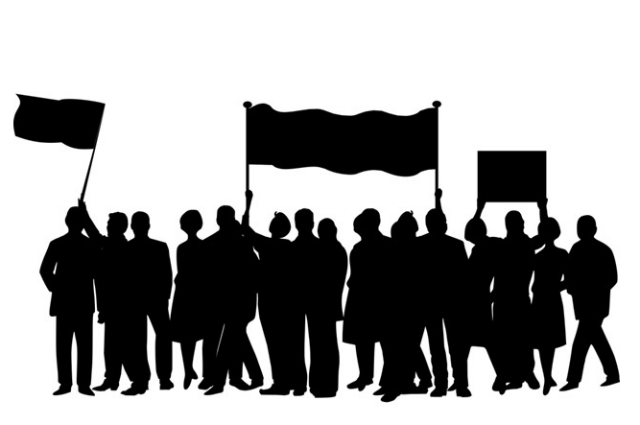
Unity in diversity! How we Indians pride ourselves on this ironic claim! It’s true that we possess diversity in every sphere, but there’s little uniting us against our differences. This idea is reinforced by the numerous instances in the past few months where religion has become the bone of contention.
No, I don’t aim at speaking about the protesting girls in Karnataka and commenting on their strife between education and a veil, as I think the media has kept us highly updated in that regard. Rather, I would like to the highlight the scenarios which the biased media, appealing to ‘secularist’ mindsets has been concealing from us.
More than a month ago, Lavanya, a Hindu girl committed suicide in Tamil Nadu. This was abetted by her school which constantly forced her to convert to Christianity. Unable to forfeit her religion, she was ruthlessly harassed and soon succumbed to the enormous pressure. I don’t know what saddens me more, that we live in an India where religious conversions have found their way into classrooms, or that we live an India where such injustices are hidden in the name of secularism. You might not have heard about the death of this innocent girl, but you have surely heard a lot about the protesting girls in Karnataka. Both matters about religion, one resulting in loss of life the other in loss of veil, but the media keeps the former entirely concealed. This unjustified bias, is what threatens the sovereignty of our nation extensively!
Kishan Bharawad, was a shopkeeper in a village of Gujarat. Portraying his opinion, he posted a video showcasing the Hindu god of Krishna to be superior to Prophet Mohammad and Jesus Christ, for which he subsequently apologised. A group of local muslim youth, instigated by a maulwi, brutally murdered Kishan for committing this act of utmost “blasphemy”. So, if a group of JNU students exercising their freedom of speech and expression are subjected to a police-blockade, we are violating their rights, but if a person is killed for an innocent tweet, the media doesn’t consider the issue important enough to be emphasized.
The media has done its best in the past month to portray the essential sentiment with which the protesting girls have been fighting for their rights. While they are being granted freedom in its entirety to carry out these protests, 6 hindu men have been killed for supporting the government’s order banning hijabs in educational institutions. Innocent men like Harsha, just expressing their opinion, had to face the wrath of these radical mindsets.
All I can draw from these happenings is that injustice is being committed widely. However, for some reason we are provided with only one side of the story. Why? Maybe because we are a secularist country. Maybe because we were too busy safeguarding the minorities that we didn’t realise when the majority drifted into oblivion. All I say is that secularism can be interpreted in two ways. Either ignore religion entirely or give equal importance to each one of them. So, in our bid to become more and more secularist, I personally feel we might have forgotten that there are religions other than the minorities.
Malala Yousafzai tweeted that she condemned the oppression the girls in Karnataka were being subjected to. The international ambassador of religious freedom tweeted that the government was obstructing the rights of Muslim girls. New York times reported that this decision was unjust. At the same time, we come to know about 1000 Hindu girls in Pakistan were kidnapped, and converted forcibly to Islam. These religious rights “activists” unfortunately didn’t have a view on this occurrence. I wonder which was more unfortunate, the case in India or Pakistan?
Is it that the world supports anti-government movements in India to create unrest in our nation? Otherwise, why would the New York times condemn Modi’s stance during the farmers’ protest in India while laud Trudeau’s decision to declare emergency during the freedom convoy protests by truckers?
Religion by itself is a very sensitive topic, but when exploited by the dirtiness of politics, the controversy appends. Hoping that we are able to break away these narrow domestic walls of religion, renounce prejudice and achieve the “unity” which we have forever exploited.
